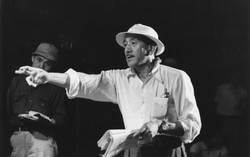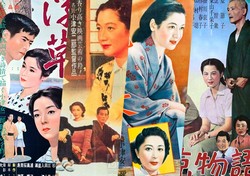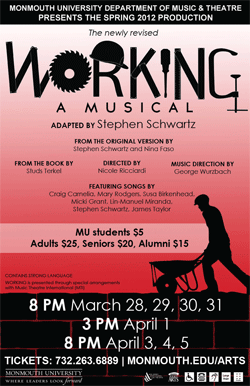In Tokyo Story, an aging mother and father from a small village go to Tokyo to visit their adult children, but when they arrive, their children don’t have any time for them. In Late Spring, Noriko is a beautiful young lady who would like to marry, but she doesn’t want to leave her father all by himself. In Equinox Flower, a daughter refuses an arranged marriage to choose her own spouse, but her stern father has a difficult time accepting her decision.
It’s these simple stories that Japanese director Yasujirō Ozu told so eloquently during his 35-year-long career. Ozu (1903-1963) saw a time where films transitioned from silent to talkie, even from black-and-white to color, and the director successfully made those transitions. A lot of Ozu’s work is free on YouTube, but some of his best films are a part of his Criterion Collection set, Late Ozu. Most of the director’s films, which he also wrote the screenplays for, centered around family, along with understanding the different perspectives from older and younger generations.
The way he told his stories was unlike any other director. While the subjects are simple, Ozu made the audience think a little bit by throwing them right into the conflict. There was never any formal introduction to the characters or backstory, Ozu just got right on with it.
When I began watching Ozu’s films, I was a little flustered and confused when he’d dive right into the story without any context. However, you learn to accept it because you realize that after a half hour, the film will come to you. Twenty minutes ago you had no clue who Noriko was, but suddenly you’re wrapped up in her situation.
 Another aspect of Ozu’s craft is how intimate he paints his pictures of families. In Japanese culture, a lot of conversations happen while sitting on the floor. When Ozu’s characters come down, he positions the camera right with them. This puts the characters in the dead center of the frame, as if you’re on the floor talking with them.
Another aspect of Ozu’s craft is how intimate he paints his pictures of families. In Japanese culture, a lot of conversations happen while sitting on the floor. When Ozu’s characters come down, he positions the camera right with them. This puts the characters in the dead center of the frame, as if you’re on the floor talking with them.
You can always point out these Ozu-isms with each flick. For music, he started every movie with a lush orchestral song, sprinkled in between some scenes, then when the film came to a close, the orchestra played out the end title card.
A favorite setting of Ozu’s were the little empty bars, where characters enjoyed kicking back on sake and shooting the breeze. Ozu even exposed audiences to Japanese customs like the wife picking up her husband’s clothes from the floor when he came home, group singing at special events, or people bringing up that classic line, “It’s time to find yourself a husband/wife!” It sounds crazy today, but that was 1950’s Japan.
Speaking of the characters, Ozu casted practically the same cast for each film to play nearly identical roles every time. In every movie, I always find myself saying “Oh God, this guy again!” For example, one of Ozu’s veterans actors, Chishū Ryū, appeared in 14 of Ozu’s films. And in each one, he typically played the dad or older wise man. Another actress, Setsuko Hara, appeared in six of Ozu’s films. She went from playing a daughter in Late Spring to maturing into a mother role in Late Autumn. Of course, Ozu always had a fine lineup of actors that helped each story hit closer to home.
While Ozu was materful with simplicity, he wasn’t afraid to dabble in controversy. My favorite Ozu feature is the heartbreakingly powerful Tokyo Twilight. In the film, Ozu explores a young woman’s difficult choice to get an abortion and the brutal impact it has on her life. For 1957, Ozu was ahead of his time on sympathizing with a young woman going through this issue. Few openly talked about abortion in Japan, but Tokyo Twilight showed how much Ozu was willing to understand the perspective of the younger generation.
Although Ozu’s messages came from over 50 years ago, they still stand the test of time because they’re about things we often overlook in our life. Record of a Tenement Gentlemen exhibits the blessing children can bring. Tokyo Story reminds us to not forget our parents or loved ones, even if we get caught up in life. And Equinox Flower shows how even though it can be difficult to understand a younger generation, there will always be differences we have to accept. It’s a cycle.
For these reasons, Ozu is my favorite director. His films remind us of the simplicity in life we tend to forget. From his choice of actors to his style, Ozu kept his films simple, and we should do the same with our lives. It can always get a little hectic, but in the moments you can, think about how lucky you got it, one way or another.
IMAGES TAKEN from No Film School




